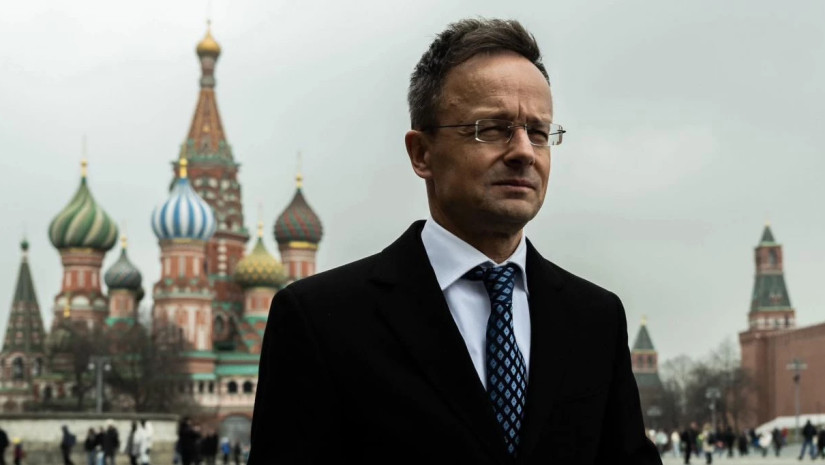Will Hungary Send €1.5 Million to Lebanon's Army Instead of Ukraine?

Published: 2025-11-16 09:31:56 | Category: business
Ungary's Minister of Foreign Affairs, Péter Szijjártó, announced that Hungary will redirect its €1.5 million contribution from the European Peace Facility, initially intended for Ukraine's armed forces, to support the Lebanese Army instead. Szijjártó emphasised that witnessing peace in the Middle East is a national interest for Hungary, with the stability of Lebanon being crucial.
Last updated: 05 October 2023 (BST)
What’s happening now
The recent decision by Hungary to redirect financial support from Ukraine to Lebanon marks a significant shift in its foreign policy. This move underscores Hungary's prioritisation of Middle Eastern stability over its previous commitments to Ukraine amidst ongoing tensions in Eastern Europe. The Hungarian government has consistently highlighted its stance on not supplying weaponry to Ukraine, instead choosing to aid Lebanon, which it views as a strategic ally in the region.
Key takeaways
- Hungary is reallocating €1.5 million from the European Peace Facility to support the Lebanese Army.
- This decision reflects Hungary's focus on regional stability in the Middle East.
- Péter Szijjártó has previously expressed similar intentions in February 2023, when Hungary pledged €991,500 to Lebanon.
Timeline: how we got here
The recent developments can be traced back to key moments in Hungary's foreign policy regarding military aid:
- February 2023: Hungary announces a commitment of €991,500 to support the Lebanese Army instead of sending arms to Ukraine.
- October 2023: Minister Szijjártó confirms the redirection of an additional €1.5 million from the European Peace Facility to Lebanon.
What’s new vs what’s known
New today/this week
Hungary's announcement to reallocate funds from Ukraine to Lebanon is the latest development, reflecting its ongoing foreign policy shift and commitment to Middle Eastern stability.
What was already established
Prior to this, Hungary had consistently refrained from sending military aid to Ukraine, opting instead to provide financial support to Lebanon, reinforcing its stance on European peace and stability.
Impact for the UK
Consumers and households
While the immediate effects of Hungary's decision may not directly impact UK consumers, it signals a broader trend in European defence spending and priorities, which could influence the UK's strategic considerations in international relations.
Businesses and jobs
As countries realign their defence budgets and foreign aid, UK businesses involved in defence and security may need to adapt to shifting demands and partnerships. This could affect contracts and collaborations within the sector.
Policy and regulation
The UK government may need to reassess its own foreign policy in light of Hungary's decisions, particularly concerning its support for Ukraine and broader European security frameworks.
Numbers that matter
- €1.5 million: Amount Hungary is redirecting to the Lebanese Army.
- €991,500: Previous support pledged by Hungary to Lebanon in February 2023.
- 0: Number of arms supplied by Hungary to Ukraine, maintaining its position against military assistance.
Definitions and jargon buster
- European Peace Facility: A financial instrument established by the EU to enhance the capacity of partner countries to manage crises and conflicts.
- Lebanese Army: The military forces of Lebanon, tasked with defending the country and maintaining internal security.
How to think about the next steps
Near term (0–4 weeks)
Monitor Hungary's implementation of its financial support to Lebanon and any potential responses from the EU or other member states regarding military assistance to Ukraine.
Medium term (1–6 months)
Watch for shifts in Hungary's foreign policy and any potential implications for relations with other Eastern European countries, as well as with the EU regarding defence strategies.
Signals to watch
- Statements from the Hungarian government regarding future military aid allocations.
- Reactions from the EU concerning Hungary's redirection of funds.
- Changes in the regional stability of the Middle East and its effect on European foreign policy.
Practical guidance
Do
- Stay informed about developments in Eastern European foreign policy.
- Consider the implications of Hungary's decisions for regional security in the Middle East.
Don’t
- Assume that Hungary's decisions will not affect wider European security dynamics.
- Ignore the potential for shifts in defence spending priorities across Europe.
Checklist
- Review the latest news on European defence policy changes.
- Evaluate how these changes may affect your business or interests in the region.
- Consider engaging with analysts or experts on international relations for deeper insights.
Risks, caveats, and uncertainties
While Hungary's redirection of funds demonstrates a clear shift in priorities, it also raises questions about the stability of the region and the potential for backlash from other EU member states. The long-term effects of this policy change remain uncertain, particularly in the context of ongoing conflicts and geopolitical tensions.
Bottom line
Hungary's decision to support the Lebanese Army instead of Ukraine reflects a significant pivot in its foreign policy, prioritising Middle Eastern stability over commitments to Eastern Europe. This shift could have broader implications for European security dynamics and international relations moving forward.
FAQs
Why is Hungary redirecting funds from Ukraine to Lebanon?
Hungary believes that supporting the Lebanese Army aligns with its national interests in promoting stability in the Middle East, which it views as crucial for regional peace.
What is the European Peace Facility?
The European Peace Facility is an EU financial instrument designed to enhance the capacity of partner countries to manage crises and conflicts, allowing for military support and training.
How might this decision affect European security?
This decision could lead to a reevaluation of military aid policies within the EU and influence how member states approach their support for conflict-affected regions like Ukraine.



